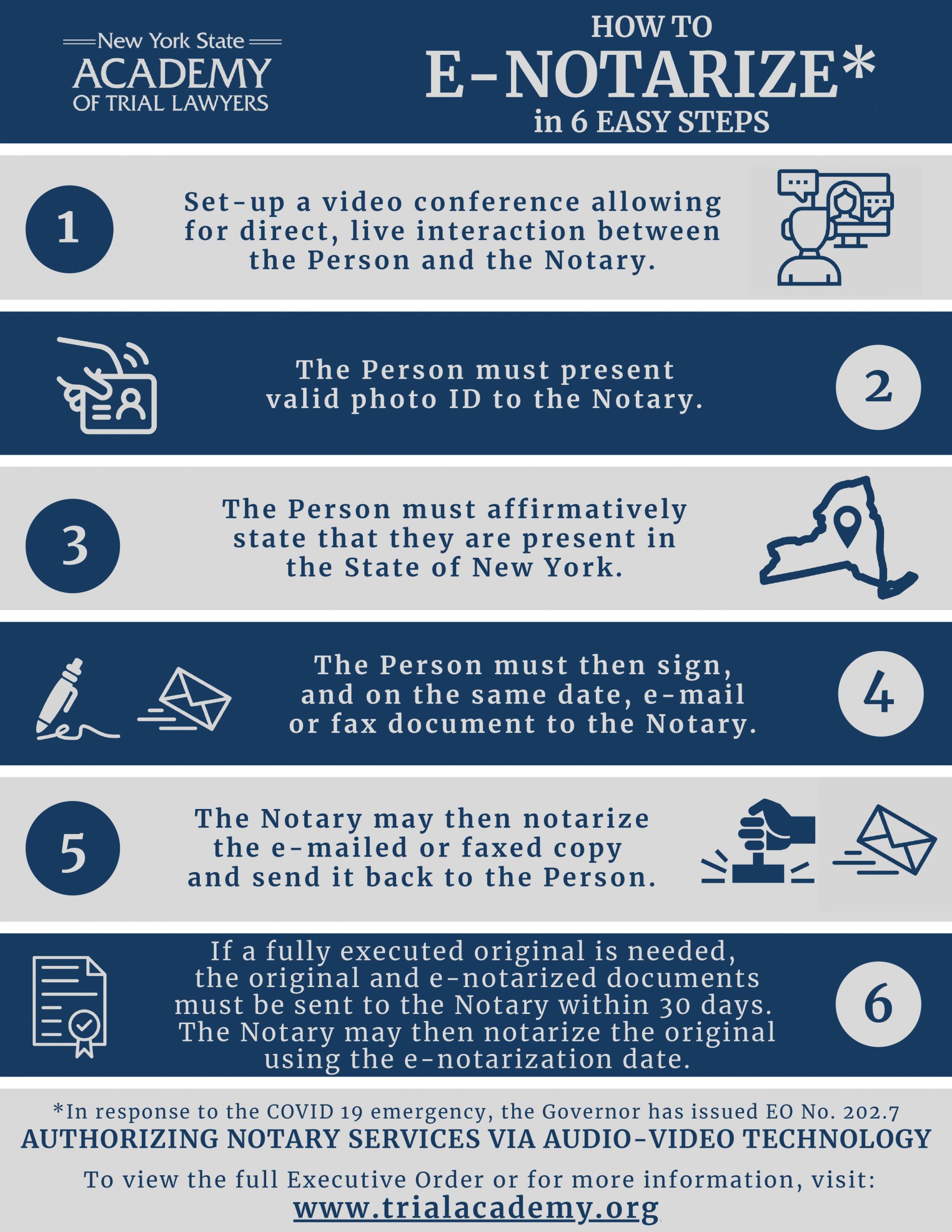

Doing anything to the Will can be a reason to invalidate it. IMPORTANT: Don't remove the staples from the Will when making copies. Once the Will is admitted to probate or a small estate, it becomes a public document that anyone can see and read. Wills are a confidential document until the person dies. If the person who died had less than $50,000 of personal property, then a small estate (also called a voluntary administration) can be filed instead.

The Will must be filed in Surrogate's Court and admitted for probate before the wishes of the person who died can be followed. In some counties, the Surrogate's Court has a vault where Wills are stored for safekeeping until the person dies. If a lawyer prepared the Will for you, you may want to discuss with the lawyer where to keep the original Will. In order for us to notarize a document, New York State law says the person whose signature is. The Will should be kept in a safe place where it will be easy to get to if it is needed. Do I need to be present to have something notarized Yes.

A self-proving will speeds up probate because the court can accept the will without contacting the witnesses who signed it. However, New York allows you to make your will 'self-proving' and you'll need to go to a notary if you want to do that. A Deed: When real property transfers, the person or persons that transfer the property must sign the deed. No, in New York, you do not need to notarize your will to make it legal. Otherwise, if you need to submit them to a legal governing body, they won’t be accepted. Wills can also appoint a guardian for their children. Articles of Incorporation: When you start a company you create Articles of Incorporation. A Will is a written statement of what a person wants done with their property after they die.Ī Will can have directions for how property should be divided and names an Executor to carry out those wishes. A Last Will and Testament is also called a Will.


 0 kommentar(er)
0 kommentar(er)
